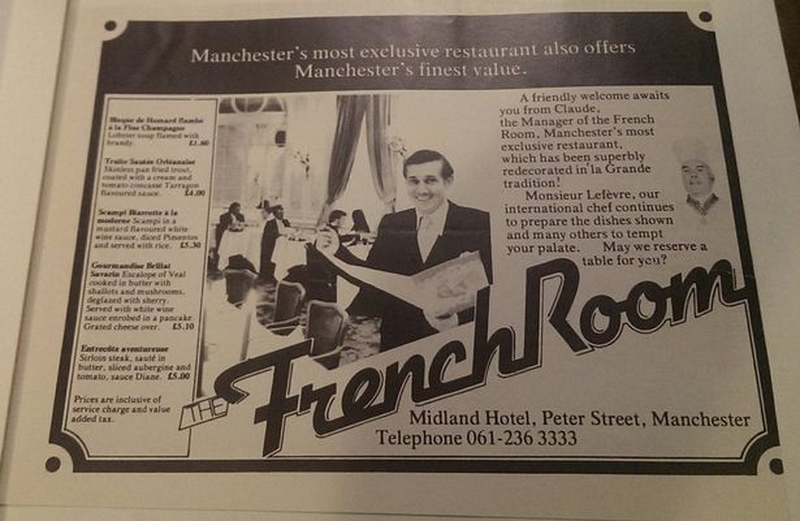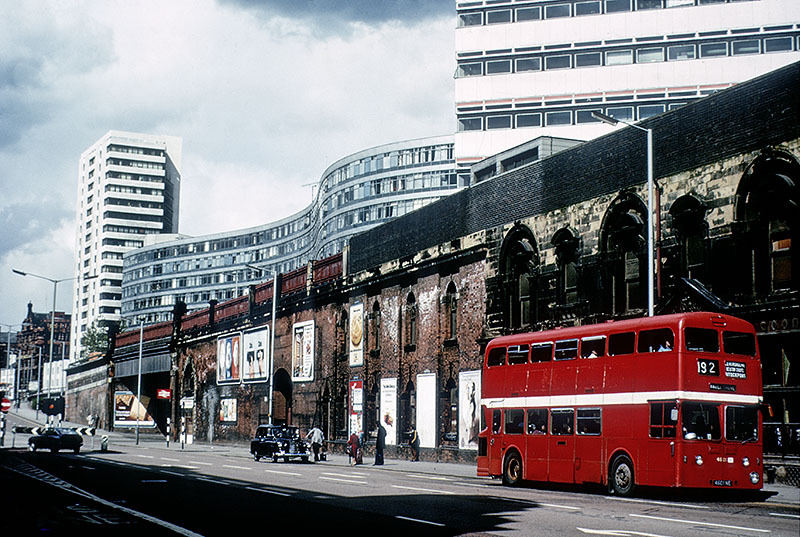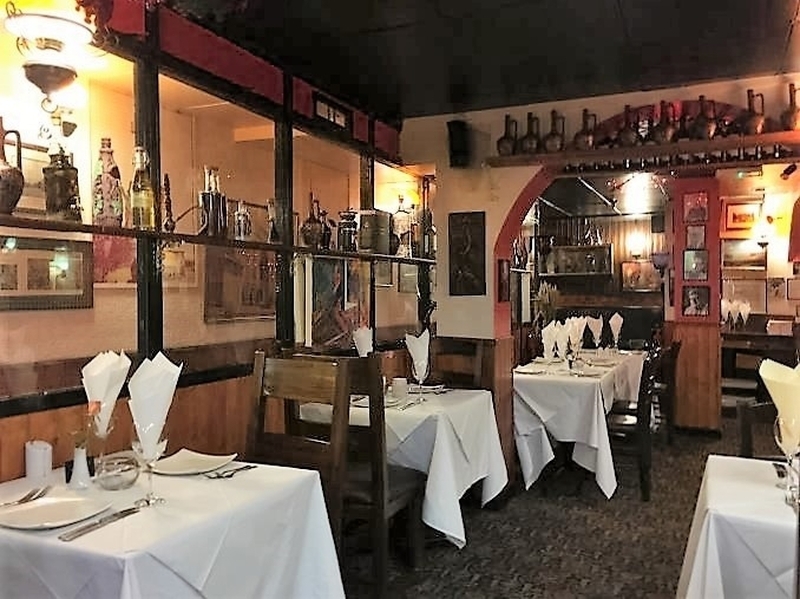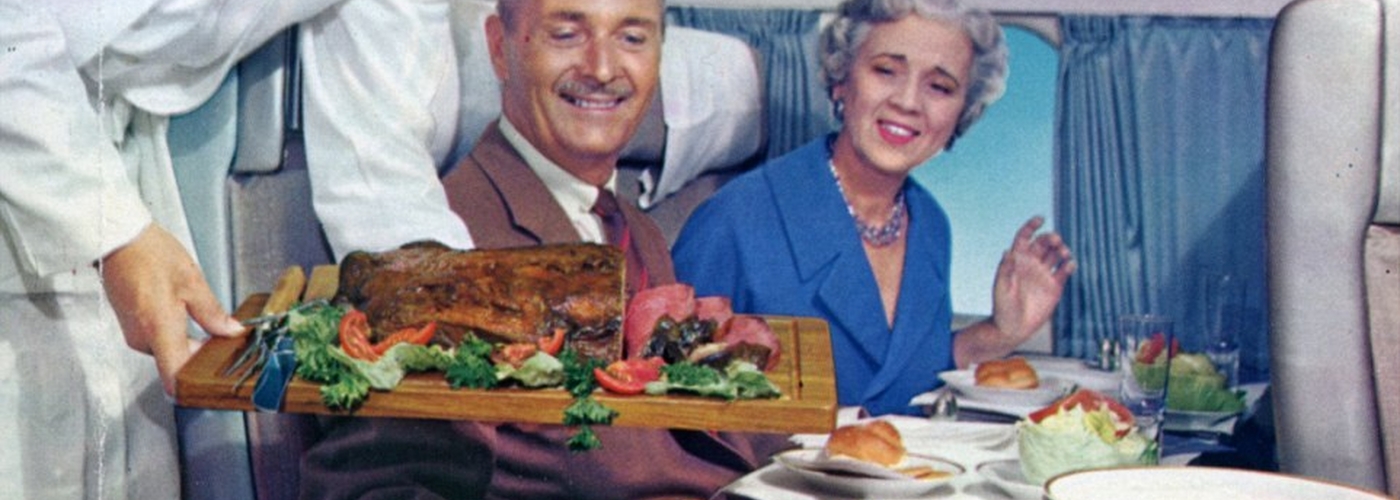Jonathan Schofield and one of Manchester's most extraordinary 'characters'
‘THE first step to becoming a gourmet is to be born to discriminating parents. I had that good fortune myself, and I have been eating out in and around Manchester very pleasurably for many years thanks to them.’
That’s not me writing that. Nor Gordo.
It’s an extraordinary character called Ralph Raffles writing in 1972.
Raffles also recommends a restaurant selling typical French food called Le Marmite. Excellent
The past is a foreign country, they eat things differently there, as someone almost once said. Here Raffles is writing an article for a booster magazine for the city to help bring in investment. His aloof and patrician tone is hugely entertaining, as though he’s been told this is how food writers should write. This is a common error amongst food writers.
Yet, to compare the city scene then with the one now is seductive. Not least its prices.
‘My memories go back to the Octagon Room at the Midland Hotel in the nineteen thirties when you could eat as much as you wanted for half a crown,’ writes Raffles. ‘When my wife and I recently took our four children out for lunch as a special treat the bill came to £23. Since then we’ve taken them to a Wimpy bar, which we leave completely satiated for £1.50. Between those two extremes, one can eat as well in Manchester and its environs as anywhere in the world, in fact far better and more cheaply than in many capital cities. Service varies, of course, but this is Manchester, so on the whole it is friendly and informal rather than stately.’

Some things never change.
‘Let’s start in the Midland Hotel’s French,’ continues Raffles, ‘to me it is the best in the whole region and I don’t hold that view only because they have paid me the compliment of naming a dish after me. It is Oeufs Brouilles a la Raffles, scrambled eggs baveuse wrapped in smoked salmon, perched on hot thick buttered toast and topped with caviar. Have a glass of vodka with it.’
Raffles mentions the chef of the French, Gilbert Lefevre, who in 1972 was in proud possession of a Michelin star.
Raffles also recommends the trout soufflé and a dish called moules poulette of ‘mussels, cream sauce, baby mushrooms and tiny onions on a bed of rice’ which seems a curious collection of ingredients. He also recommends a Mouton Rothschild for £7.50 and thinks in London you’d be lucky to find it for less than £15.
His other luxury dining tip is the Piccadilly Hotel where Brian Hodgson’s ‘veal in cream’ is highlighted. Raffles recalls a ball there ‘when the main dish was poussin farci for each guest, all 550 of them. The staff had been up all night preparing the poussins, which had to be boned before the flesh was minced with cream and then stuffed back in the skins, the results looking as though the baby chickens had not been touched. A beautiful presentation.’
The kitchen must have loved Brian Hodgson that night.

Further afield ‘close to the airport, but well sound-proofed, is the Excelsior, with a French chef, Christian Moury. He is proud of his saddle of lamb Devonshire with sliced apples, with a sauce of cream mushrooms and cider.’
Raffles then spins round the city starting off with three paragraphs on the Armenian Restaurant. ‘Try the Persian roast chicken or the Armenian dolma or the ‘oriental pizza’. A good meal there, without the wine, will cost about £2 a head, about the Manchester average.’
£2?
Other city centre restaurants our man recommends are Kwokman, ‘a lorry drivers’ caff style’ in a Chinatown that has yet to form, the Isola Bella in Booth Street and Luigi’s in Union Street - a street no longer exists. Then there’s Beaujolais in West Mosley Street and the Danish Food Centre at the Royal Exchange which is quite the thing and costs around £1.75 a head. ‘For four or more people roast goose with prunes and red cabbage is a 'must'’.
Raffles also recommends a restaurant selling typical French food called Le Marmite. Excellent. Although it's a shame Raffles offers no explanation for the intriguing name. It was on Faulkner Street, ‘tucked away’. ‘If you don’t know the town,’ advises Raffles, ‘some of its places need some finding’. Everything is ok though, because, ‘In Manchester people who are the friendliest people in the world will take great pleasure in directing you or even showing you the way if you ask them’.
I’m going to test that theory this lunchtime by asking for directions to Sparrow.

Out of town the Manzil, an ‘Indo-Pakistani’ place on Stockport Road gets a mention (‘curries range from gentle to ferocious’) as does the Casa Espana on Wilmslow Road famous for its 'kidneys in sherry'. There’s the Bells of Peover in Cheshire too, Enzo’s in Alderley Edge, the Casserole in Swinton and Le Bon Gourmet in Hale.
Raffles fave though is Yve Champeau’s Normandie restaurant at Birtle near Bury. Yves was a character, who once ‘denounced a customer who asked for vinegar on his chips. He abhors people who ask for steak au poivre then order a delicate wine’. There’s ‘soupe de poisson, the langouste, or the chevreuil Coupigny’. Wash it down with ‘1945 Vosne-Romanee Les Suchots (£3.50) or several wines with ‘mis en boutelles a Birtle’, a wonderful label to prise off and carry away’.
The surprise recommendation is the Polynesian restaurant in Wythenshawe Civic Centre run by Mr Tom Dover with its ‘butterfly prawns, barbecued ribs, po-pos which, believe it or not are chicken livers wrapped in bacon and egg rolls’. Personally I've never been to Wythenshawe Civic Centre to dine. What is clear is that there was a decent range of dineries in the Manchester area in 1972. What is also clear is that there were a number of high class French chefs in the area. Still, if you look at the trade directories of the day, there was perhaps fifteen percent of the choice we now have in the city centre. There are three survivors, The French, the Armenian and the Bells of Peover, although that’s outside the city. What odds would you have got on the Armenian surviving all these long decades?
Ralph Raffles: an extraordinary character
Prestwich-born Ralph Raffles was an all round interesting chap.
He defined the term 'larger than life' as his 2013 obituary described. 'The son of one of the most eminent members of the city's Jewish community, he was commissioned in the Oxford and Bucks Light Infantry and saw active service in World War II throughout France, Africa, India and Burma. He went on to serve with the Territorial Army, but was kicked out after bombing his brigadier with flour bombs from a light aircraft on Middleton Sands, Southport.
'Educated at Manchester Grammar School and Manchester University, he was well known for his sense of fun, and at one luncheon he hosted at his Didsbury home in aid of the World Wildlife Fund, he arranged to borrow a number of animals from Belle Vue Zoo, including an elephant that caused some embarrassment when it charged Prince Philip who was one of the guests.' Despite this he counted the Duke of Edinburgh as a friend.
Raffles represented Britain at swimming, running, golf, boxing, water polo, rugby, car-rallying, and sand yachting. Clearly that wasn't enough because he was also a member of the Olympic bobsleigh team. He served as the deputy Lord Lieutenant and then High Sheriff of Greater Manchester. He was boss of the regional St John’s Ambulance.
In something that seems to underline his 'jetset' life he was appointed 'the Honorary Consul for the Mediterranean casino-state of Monaco in Manchester, after being introduced to Prince Rainier by showbusiness friends'.
He was a 'descendant of explorer Sir Stamford Raffles who founded the British colony of Singapore in 1819, his family came to Britain as refugees from Czarist Russia. His money came from a clothing company and his brother Gerald 'was a partner of legendary actress Joan Littlewood in the famous Theatre Workshop'.
Raffles died in 2008 but it's charming to rediscover for food-loving Manchester Confidential an early critic of the city's nosh. More than that it's just lovely to rediscover such a flamboyant chap. What a life. What a Mancunian.
*By the way the main picture for this article doesn't show Raffles, just an amusing 1970s photo of the 'jetset' in a jet plane.
Jonathan Schofield offers regular tours of the city including pub tours. The tours cover a huge range of themes and topics - here's a list. With every voucher people receive a daily weekday gift. Gift vouchers can be purchased via this link.













